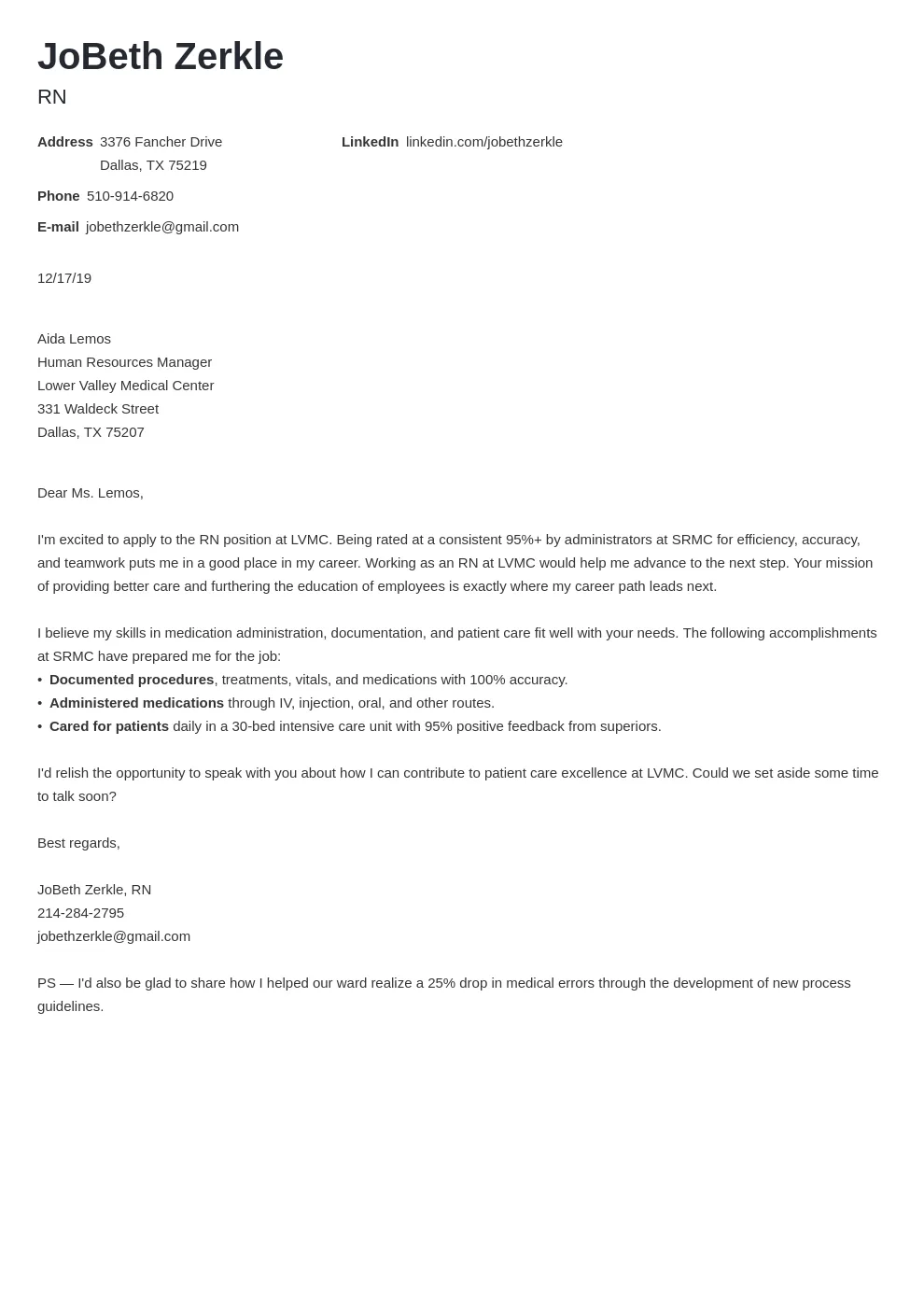Cover Letter for RN Jobs
Crafting a compelling cover letter is crucial for Registered Nurses (RNs) seeking employment. A well-written cover letter serves as your introduction to a potential employer, providing an opportunity to showcase your skills, experience, and passion for nursing. It’s not merely a formality; it’s a powerful tool to distinguish yourself from other applicants and secure an interview. This guide provides a comprehensive overview of how to write an effective cover letter specifically tailored for RN positions, ensuring you make a lasting impression and increase your chances of landing your dream job. A well-structured cover letter for an RN role is one of the initial steps to a successful job search.
Key Elements of a Cover Letter for RN
A strong cover letter for an RN position should include several key components. It should begin with a professional header, followed by a clear and concise introduction. The body of the letter should highlight your relevant skills, experience, and achievements. You must tailor the letter to the specific job and express your enthusiasm for the role. The content should show your understanding of the organization. Finally, a professional closing with a call to action will reinforce your interest. By including these elements, you create a cover letter that is both informative and persuasive, increasing your chances of securing an interview and ultimately, the job. Remember to proofread carefully before submitting.
Header Section
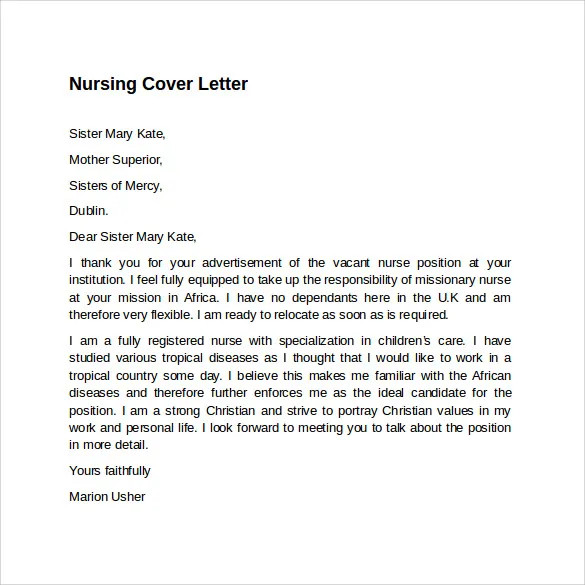
The header of your cover letter is the first thing a hiring manager sees, so it must be accurate and professional. Start by including your full name, address, phone number, and email address. Ensure this information is easy to read and up-to-date. Next, add the date and the recipient’s information, including the hiring manager’s name (if known), title, and the hospital or clinic’s address. Using a professional header helps to establish credibility and enables the recruiter to easily contact you. Accuracy is critical, so double-check all details before submitting your application. A well-formatted header demonstrates attention to detail, a quality highly valued in the nursing profession. See image: header-cover-letter.
Your Contact Information
In this section, provide your full name, professional email address, and phone number. Double-check for any typos or errors. Your email address should be professional (e.g., firstname.lastname@email.com). Include any links to your online professional profiles, such as LinkedIn, if applicable. The goal is to make it easy for the hiring manager to contact you and learn more about your experience.
Date and Recipient Information
Place the current date below your contact information. Next, include the hiring manager’s name, title, and the hospital or clinic’s address. Addressing the letter to a specific person shows that you have done your research and demonstrates a personalized approach. If the hiring manager’s name is not available, use a general salutation, such as ‘Dear Hiring Manager’.
Greeting
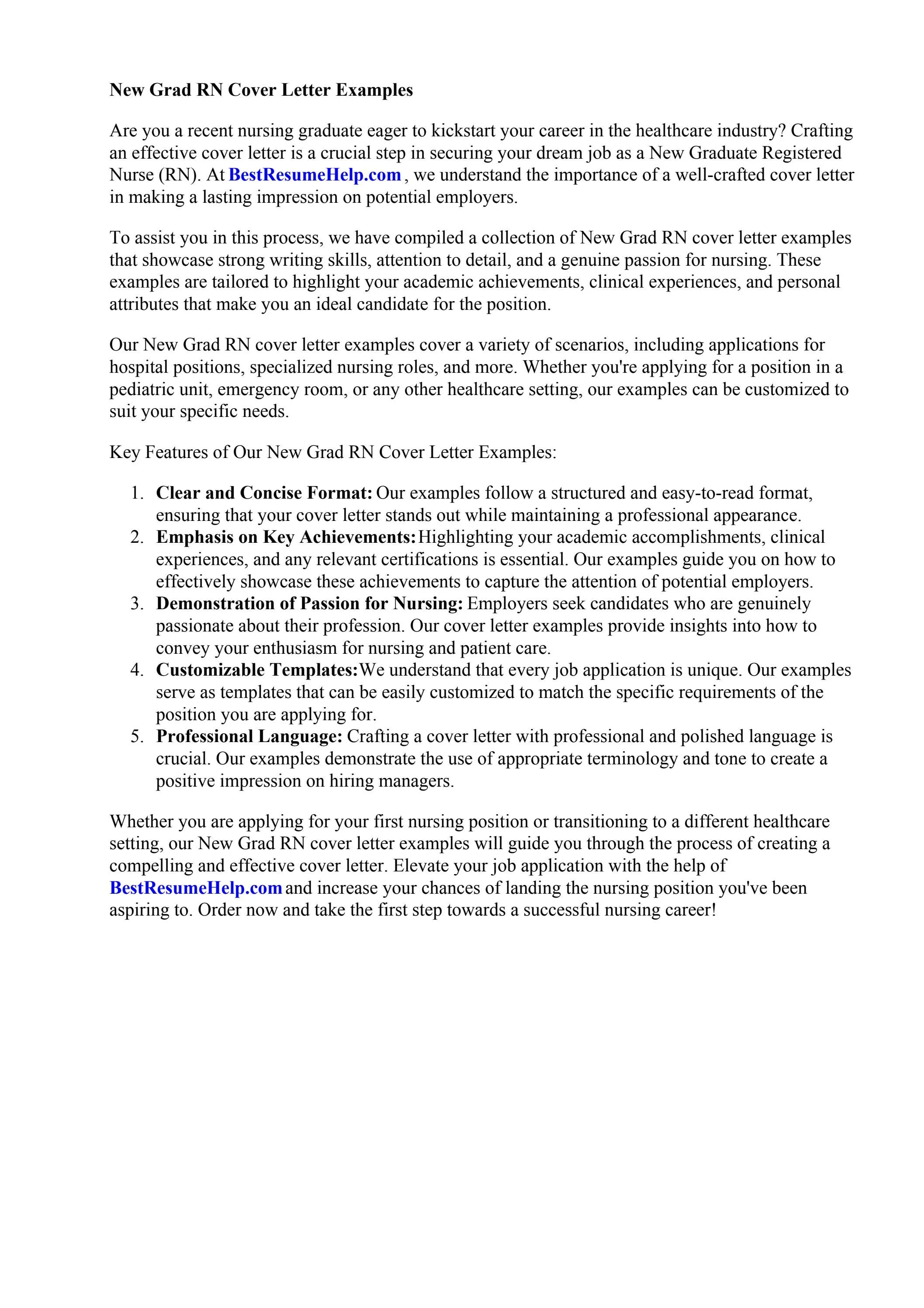
Start your cover letter with a formal greeting, such as ‘Dear Mr./Ms./Mx. [Last Name]’. If the name is unknown, use ‘Dear Hiring Manager’. Avoid informal greetings. This sets a professional tone and indicates respect for the recipient.
Body of the Cover Letter
The body of your cover letter is the core of your application. It provides an opportunity to elaborate on your qualifications and experience in a detailed manner. It should be broken into several paragraphs to make it easy to read and understand. The objective is to create a comprehensive overview of why you are the ideal candidate for the RN role. See image: rn-skills.
Highlight Your Nursing Skills and Experience
In the first paragraph, clearly state the position you are applying for and how you learned about it. Provide a brief overview of your nursing experience, including the number of years and the settings you’ve worked in. Highlight the key skills you possess, such as patient care, medication administration, electronic health record (EHR) management, and teamwork. Tailor these skills to match the job description, emphasizing the ones the employer is looking for. This section should demonstrate your relevant experience and the value you can bring to the organization. See image: rn-skills.
Emphasize Your Achievements and Certifications
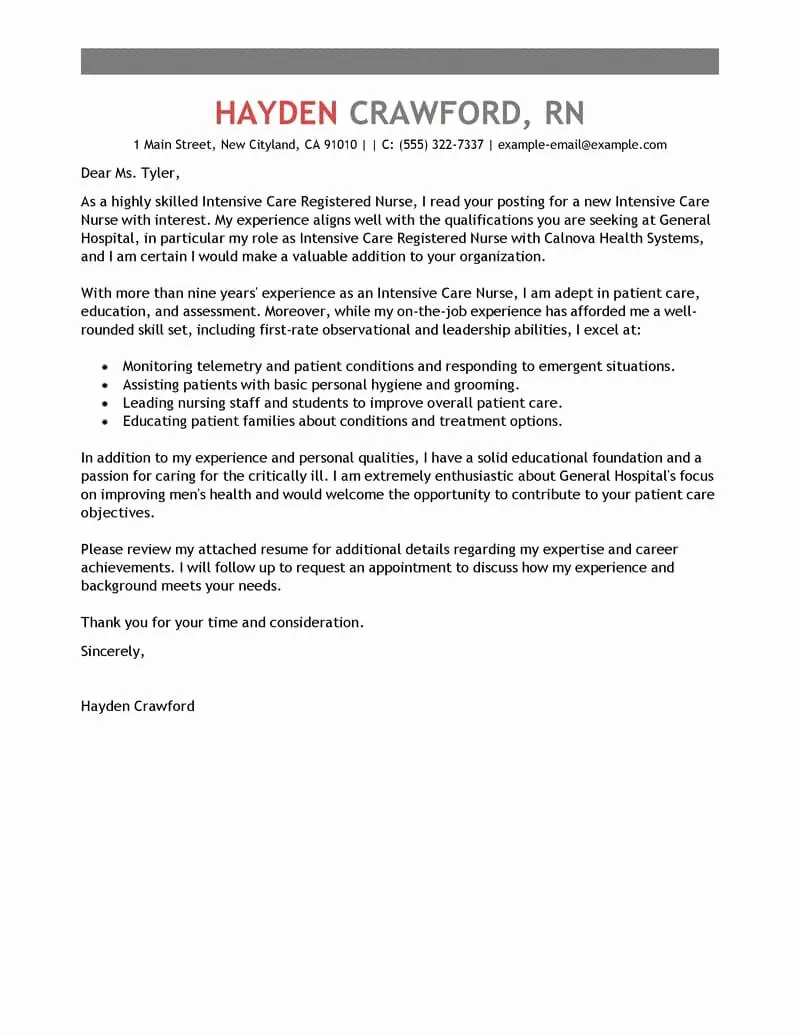
In the next paragraph, emphasize your achievements and certifications. Provide specific examples of how you have positively impacted patient outcomes or improved nursing processes. Quantify your achievements whenever possible. For instance, mention how you reduced patient falls by a certain percentage or improved patient satisfaction scores. Include details of relevant certifications, such as ACLS, BLS, or any specialized certifications relevant to the role. This demonstrates your commitment to professional development and your ability to deliver high-quality patient care. See image: rn-achievements.
Tailor the Letter to the Specific Job
Customize your cover letter to match the specific requirements of each job. Review the job description carefully and identify the key skills, experience, and qualifications the employer is seeking. Use these keywords and phrases throughout your letter to demonstrate that you are a strong fit for the role. Avoid sending generic cover letters; instead, personalize each one to address the unique needs of the position and the organization.
Use Keywords From the Job Description
Incorporate relevant keywords from the job description into your cover letter. This shows the hiring manager that you have the skills and experience they are looking for. Use these keywords naturally throughout your letter, rather than simply listing them. This practice helps your application to stand out in applicant tracking systems (ATS) and demonstrates your understanding of the role. See image: cover-letter-keywords.
Express Your Enthusiasm for the Role
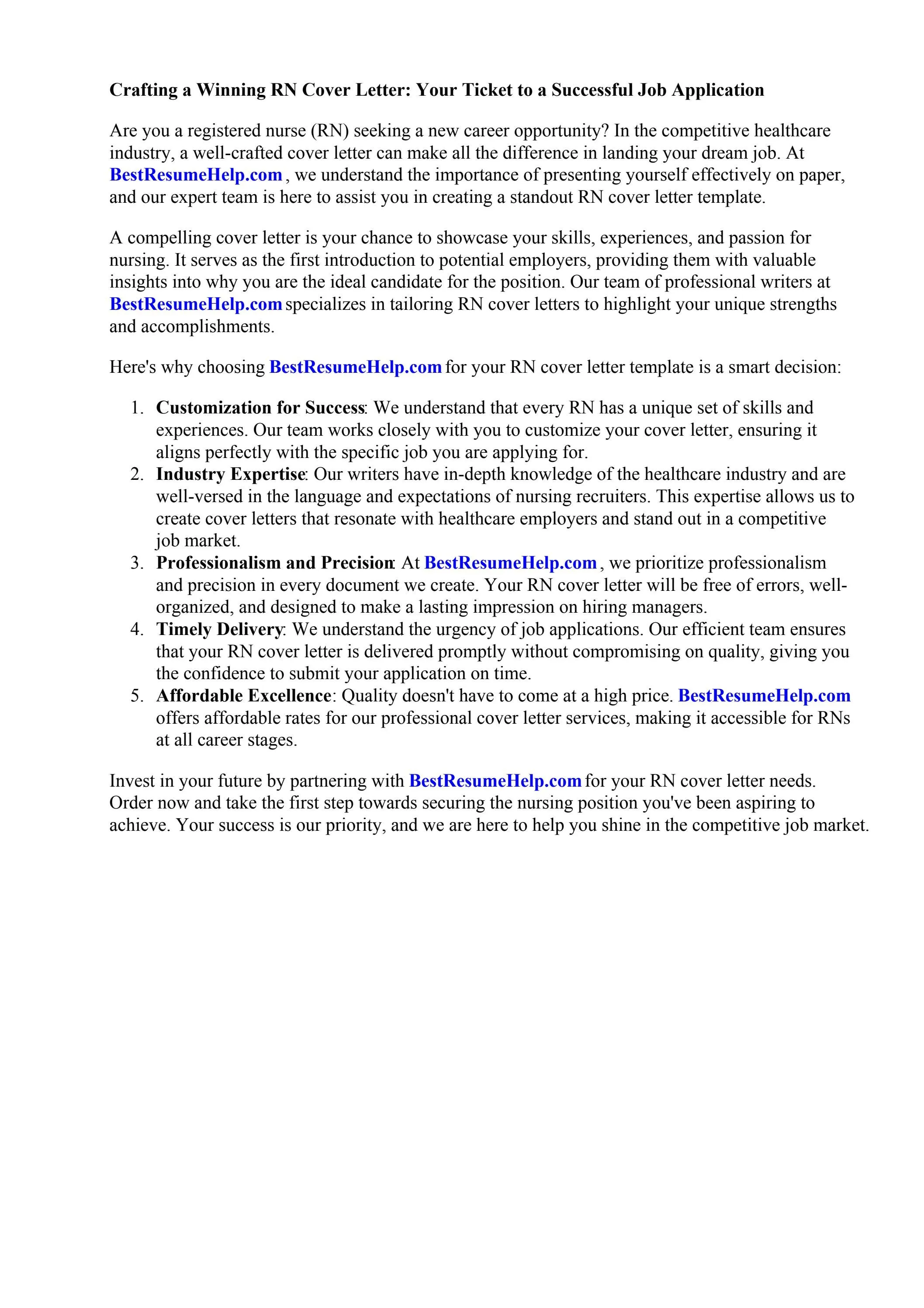
In your cover letter, express your enthusiasm for the role and the organization. Show that you are genuinely interested in the opportunity and that you have researched the hospital or clinic. Mention specific aspects of the job or the organization that appeal to you. This will show the hiring manager that you are motivated and eager to join their team. Expressing your enthusiasm can go a long way in making a positive impression.
Show Your Understanding of the Organization
Demonstrate that you understand the organization’s mission, values, and services. Research the hospital or clinic’s website and learn about its recent achievements and initiatives. Tailor your cover letter to align with the organization’s goals and values. This shows the hiring manager that you are committed to joining the organization and that you understand what is important to them. Mention specific aspects of the organization that resonate with you.
Closing the Cover Letter
The closing of your cover letter is your final opportunity to leave a lasting impression. Keep it professional and concise, and include a call to action. See image: closing-cover-letter.
Formal Closing and Signature
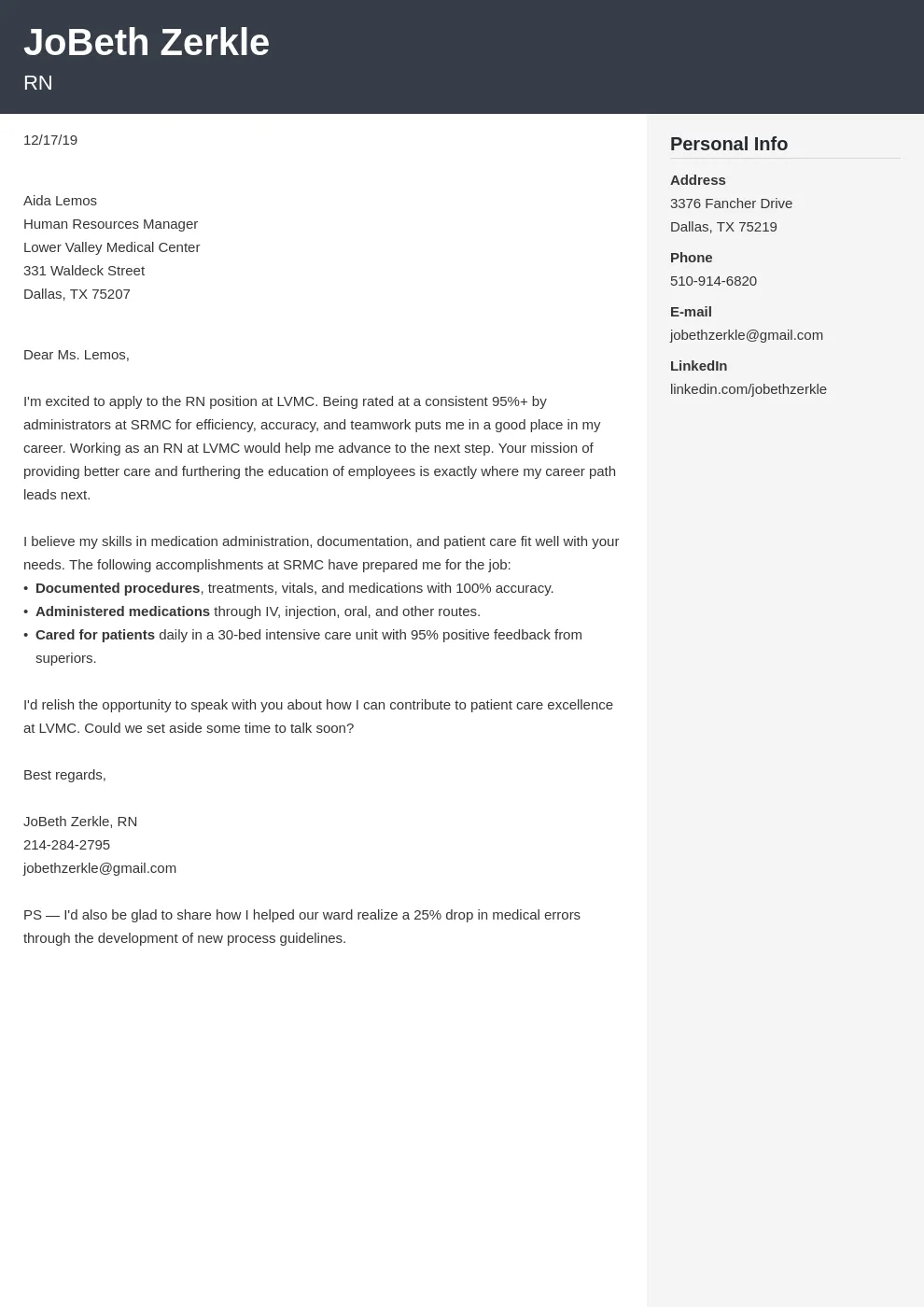
Use a formal closing, such as ‘Sincerely’ or ‘Respectfully,’ followed by your full name. If you are submitting a digital cover letter, you can type your name; if you are printing the letter, leave space for your signature above your typed name.
Proofread and Edit Your Cover Letter
Before submitting your cover letter, carefully proofread it for any errors in grammar, spelling, and punctuation. Have a friend or colleague review it as well, as a fresh pair of eyes can often catch mistakes that you might miss. Ensuring your cover letter is error-free is critical to making a professional impression. Consider using grammar and spell-check tools. Always check for consistency in formatting and style to make sure that your cover letter reflects attention to detail.
Common Mistakes to Avoid in Cover Letters
Avoid common mistakes that can hurt your chances of getting an interview. Do not use generic, overly long letters or focus solely on what you want without addressing the employer’s needs. Avoid unprofessional language, slang, and excessive use of jargon. Also, do not include irrelevant information. Instead, focus on the key skills and experiences relevant to the RN role and tailor each cover letter to the specific job.
Using a Template for Speed and Efficiency
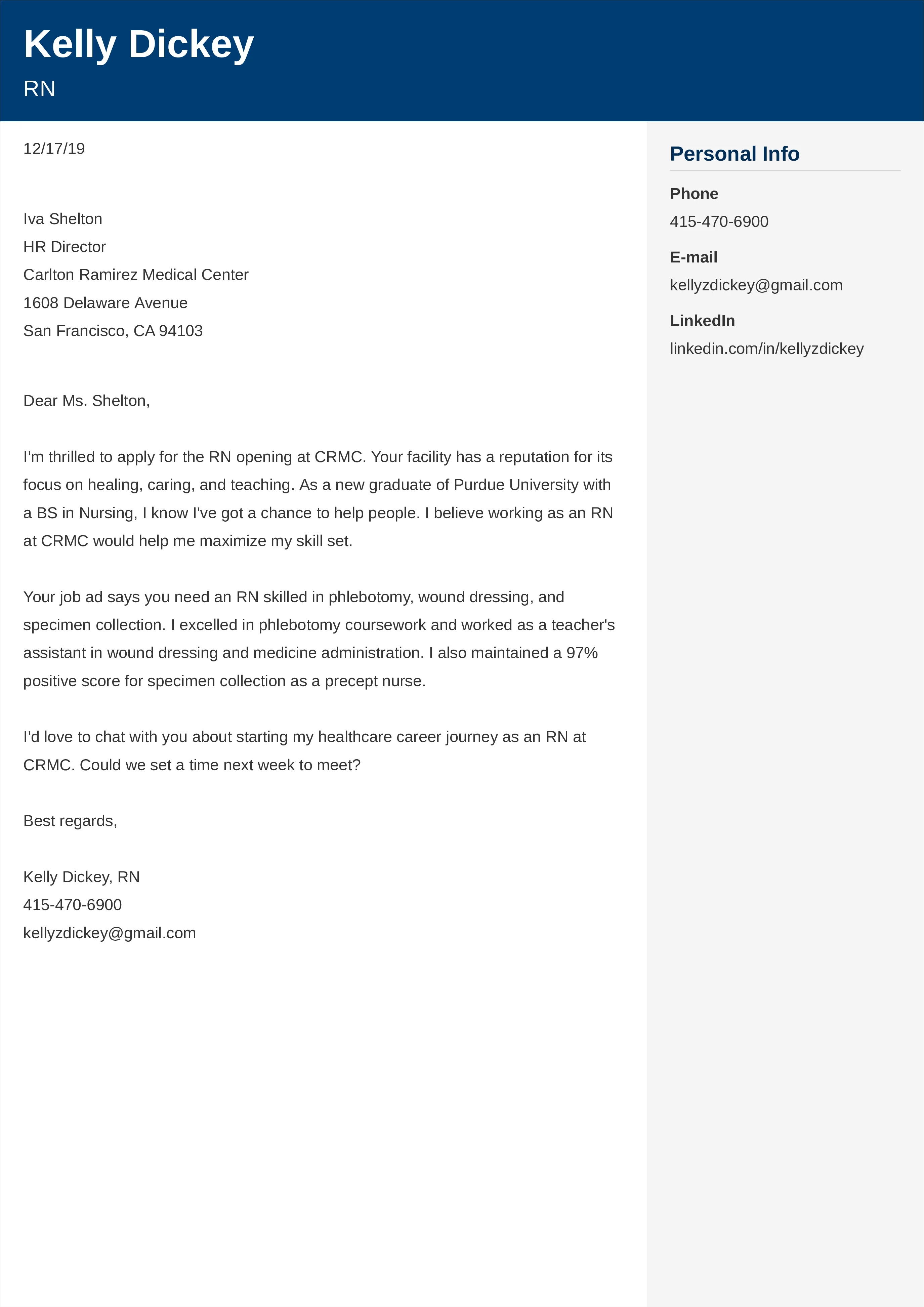
Using a cover letter template can save you time while ensuring you include all the necessary elements. Start with a basic template and customize it for each job application. Fill in your details, tailor the content to match the job description, and always proofread before submitting. By using a well-designed template, you can create professional cover letters quickly and efficiently. See image: cover-letter-template.
